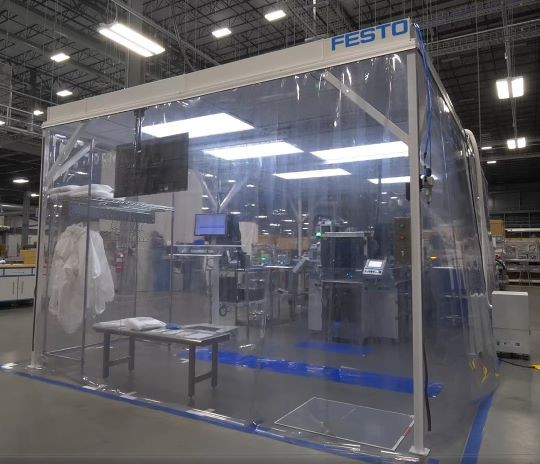Key Takeaways:
- Technical colleges in New England have a critical opportunity to lead national efforts in semiconductor workforce development by launching technician-focused training programs.
- Successful models from institutions like Portland Community College and Florida State College at Jacksonville demonstrate scalable approaches using hands-on equipment and industry-aligned curriculum from Festo Didactic.
- With a strong regional semiconductor presence and growing employer demand, New England is uniquely positioned to build a robust talent pipeline through targeted technical education.
As the United States ramps up domestic semiconductor production, driven by applications ranging from smartphones to solar panels, the demand for skilled technicians is on the rise. National investments, like the CHIPS and Science Act, are bringing new urgency to workforce development in this field. Technical colleges in New England are well-positioned to lead the country in preparing workers for the growing semiconductor manufacturing field.
The Semiconductor Industry Is Growing, But There’s a Talent Gap
The United States faces a significant shortage of technicians, computer scientists, and engineers, with a projected shortfall of 67,000 of these workers in the semiconductor industry by 2030. As the industry rapidly expands, the U.S. semiconductor workforce is expected to grow to approximately 460,000 jobs by the end of the decade. This surge in demand presents a critical opportunity for New England’s community colleges to step in and develop programs that equip students with the hands-on skills needed to fill these roles, particularly in technician-level positions that require specialized training but not a four-year degree.
How Community Colleges Can Successfully Approach Semiconductor Training
Semiconductor manufacturing can be complex when trying to meet the specific training requests of local employers. As outlined by Mike Nager from Festo Didactic, successful semiconductor training programs start by focusing on building a strong foundation of transferable, technical skills, including:
- Automation and controls related to production equipment and facility systems
- Robotics relevant to equipment maintenance and facility operations
- Understanding data creation and communication across the semiconductor ecosystem
With a solid foundation in core skills, specialized knowledge can be effectively built through on-the-job training.
Community Colleges in the U.S. Leading the Way in Semiconductor Training
Portland Community College in Oregon recently opened a state-of-the-art teaching cleanroom, the first semiconductor-focused installation of its kind from Festo Didactic. This innovative lab provides students with hands-on experience using the same tools and technologies employed by leading semiconductor companies, effectively bridging the gap between education and industry. The teaching cleanroom prepares students for high-demand careers in advanced manufacturing and serves as a model for how community colleges can lead workforce development in this critical sector.
Florida State College at Jacksonville is launching the state’s first advanced semiconductor workforce lab. This cutting-edge initiative will support more than 15 engineering and industry courses, combining Festo Didactic’s curriculum with certification pathways through the Festo Industry Certification Program and NC3, as well as advanced tools like MES4, AI vision inspection, and robotics. By aligning its programs with industry needs, FSCJ is creating a scalable model for semiconductor workforce development that community colleges across the country, including those in New England, can learn from.
New England’s Role in the Semiconductor Industry
New England plays a vital role in the U.S. semiconductor ecosystem, contributing to research and development, chip design, and device and advanced equipment manufacturing. Massachusetts ranks among the top five states nationally for semiconductor activity, with the industry accounting for a larger share of both GDP (~0.6%) and employment (~0.3%) than the national average. The region is home to a growing number of companies actively hiring for semiconductor roles, including Analog Devices, Axcelis Technologies, Applied Materials, Intel, and AMD. This strong industry presence makes New England an ideal region for scaling up technician-level training and meeting the demands of a rapidly expanding workforce.
Preparing New England’s Semiconductor Workforce Starts with Technical Colleges
Semiconductor manufacturing is a national and regional opportunity. With major employers already operating in Massachusetts and beyond, and a clear demand for technician-level talent, New England’s community colleges are well-positioned to lead. By launching industry-aligned programs that emphasize foundational technical skills and hands-on learning, technical colleges can ensure students are prepared for the future while strengthening the region’s role in a high-growth, high-impact sector.
If you're exploring how to start or scale a semiconductor training program at your technical college in New England, contact AET Labs to discuss how we can support your vision with lab design, equipment, and implementation.



